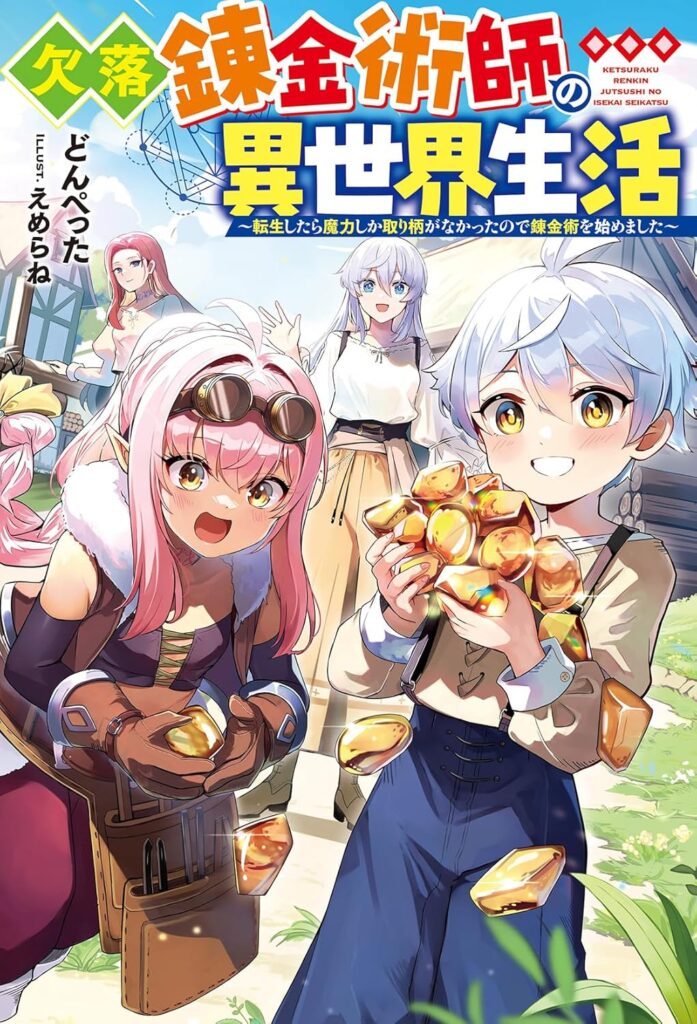
Kays Translations
Just another Isekai Lover~
Chapter 15: Stefana’s Past
Stefana’s was unknown to us.
“That expression… it seems you haven’t told her,” he observed quietly.
“Is there some… reason behind it?” my mother asked tentatively.
“Well, it’s less a ‘reason’ and more the background… the sequence of events,” he replied, his tone measured. “Stefana is a lifelong criminal slave.”
“――?! So… that’s how it is…”
There were three categories of criminal slaves. For minor offenses—inflicting slight injuries on others, petty theft, or property damage—one would be sentenced to serve as a minor criminal slave for three to ten years.
For more serious offenses—causing severe injuries to others or unintentionally causing death—one would become a major criminal slave for ten to thirty years.
And finally, for intentionally taking another person’s life, there was no release; the sentence was for life—a lifelong criminal slave.
In other words, Stefana had taken a life by her own will.
“So then… why, Your Excellency, did you take Stefana in?”
Nobles often purchased criminal slaves as disposable pawns, to be used when danger or peril arose. But Stefana didn’t seem to have been treated as a mere tool.
“…Well, sympathy, I suppose,” he admitted.
Stefana, as if bracing herself against the memory, clutched her right hand with her left, holding herself together with quiet determination.
“I understand you don’t want to speak of it,” my mother said gently, “but wouldn’t remaining silent be unfair to someone who wishes to be by your side?”
“My Lady, there’s no need to force her to speak,” the Baron cautioned.
“If you wish to keep her close, then it’s better to know the truth,” my mother insisted.
“…Yes, you’re right,” Stefana murmured, hesitating but nodding.
My mother rose from the sofa, stepping toward Stefana, and delicately enveloped Stefana’s hands in her own, a comforting and grounding gesture.
“I thought I could manage life even after leaving the Viscount household. We had enough money, and Al was clever and obedient… I thought we’d be fine. But in reality… without Fana’s help, I would have been unable even to provide proper meals for Al.”
When they first settled in the village, my mother had been completely incapable of household chores, leaving Stefana to manage everything.
“Fana was our guardian; she had no obligation to do housework. Yet she taught me, helped me with cooking and laundry, even assisted in the fields.”
My mother had learned household tasks from Stefana while simultaneously working tirelessly under the village chief’s guidance, exhausted but resolute.
“I tried to avoid interfering too much, knowing she would eventually return to Your Excellency’s care. Still, I am deeply grateful to Fana… and I feel a bond with her akin to family.”
“Lady Tine…” Stefana whispered, touched by the confession.
“If you truly do not wish to stay with me, that is fine. But if you are willing… please tell me your story, Fana.”
My mother had never imagined Stefana carrying such weight silently.
“…I understand… I will tell you,” Stefana replied softly, her voice trembling slightly.
And so, Stefana recounted the path that had led her to become a slave.
Her father had been an adventurer, her mother an adventurers’ guild receptionist. Five years after their marriage, Stefana was born, followed three years later by her sister Philomena.
But when Stefana was ten, her father never returned from a quest, and all his party members were reported missing. The official conclusion: “total annihilation due to mission failure.”
Afterward, her mother and the two sisters lived together. Yet fate was unkind—her mother fell gravely ill. Healing potions restored her health, but they could not immediately replenish her strength. She had to return to work despite her weakened body, and soon fell ill again.
Life became a grueling cycle of work, illness, and temporary recovery.
Even though healing potions were affordable to commoners, there were limits. Soon, money ran short, and they began to cut corners on food.
At thirteen, Stefana became an adventurer to support her family.
As she was still underage, she could only take low-risk, low-pay jobs, often working like a maid to keep her family afloat.
Eventually, her mother’s illness became untreatable even with potions, and she passed away when Stefana was fifteen.
Three years later, Stefana had reached D-rank as an adventurer, while Philomena worked at a small shop. Philomena, happy and hopeful, spoke enthusiastically of marrying the shop owner’s son and growing the business together.
But six months later, tragedy struck: Philomena was sexually assaulted and murdered by men from the slums.
The incident was officially deemed her own fault for venturing alone into the slums. No perpetrators were caught; the case was closed.
Stefana, however, could not accept this explanation.
It was impossible for Philomena to have gone alone. Even Stefana, a skilled sword-wielding adventurer, feared going into the slums alone. How could a mere shop assistant?
Determined, Stefana commissioned a hunter—an adventurer who hunted criminals—to investigate, relying on an informant based in the slums.
The first report identified the killer: a man known as “the Cleaner,” who, according to the informant, was hired to eliminate someone causing trouble.
The proof? He had sold Philomena’s shop uniform to a slum vendor.
The perpetrator was identified, yet slum residents’ testimony was invalid in court. Even informing the guards could not bring him to justice.
Moreover, the client—the one who ordered the murder—remained unknown.
After months, the informant discovered that Philomena might have been pregnant. A subtle clue: she had purchased medication to suppress nausea shortly before her death.
Finally, Stefana received a direct statement from the man, Philomena’s former lover, during a celebration at a tavern. He had said:
“When she told me she was pregnant, I got goosebumps. Who would marry a woman like that, who’s useless and brings no profit?”
Evidence to prosecute was lacking. But Stefana, determined, abducted the man herself to extract the truth.
Philomena’s former lover had a fiancée and had never intended to marry Philomena. She became pregnant by accident; fearful of being exposed, he hired the Cleaner to kill her.
The plan involved deceit: telling Philomena her boyfriend had been injured in the slums and needed her to deliver money. Alone in the slums, she was ambushed and murdered.
The client was her former lover and his father; the perpetrator, the Cleaner.
Because there was no admissible evidence and the informant’s testimony was invalid, the law could not act.
…And so Stefana had no choice but to kill her sister’s former lover, his father, and the Cleaner herself.
In a world with careless investigations like this, some crimes simply cannot be punished.
It was frustrating.
“Fana… did achieving revenge… bring you satisfaction?” My mother asked gently.
Stefana closed her eyes, shaking her head slowly.
“Do you regret it?”
“…I do not regret it. But… I do not know if it was truly right.”
“That is enough. In the end, no one can give a definitive answer.”
People say revenge “achieves nothing” or “brings no peace,” but those words are empty. Only the person who lost someone truly understands their pain. If one is willing to sacrifice themselves, revenge is theirs to pursue.
“I want Fana to remain by my side, supporting me in the future,” My mother said firmly.
“…Is that… truly acceptable? I am a criminal who killed out of personal grievance.”
“It is acceptable. Revenge is neither justice nor evil. But you must never use others as a reason for revenge.”
Revenge must be rooted in oneself, never justified as “for someone else” or “because of someone else.”
“Fana, stay by my side.”
“…Yes!” Stefana replied, overwhelmed by the warmth of that command, clear yet gentle.
“It seems the discussion has reached its conclusion. If this pleases you both, Stefana will be entrusted to Lady Martine.”
“Your Excellency, thank you.”
“Thank you,” Stefana echoed softly.
Stefana would never be fully freed from slavery, but perhaps… living together, like a family, might be enough.
